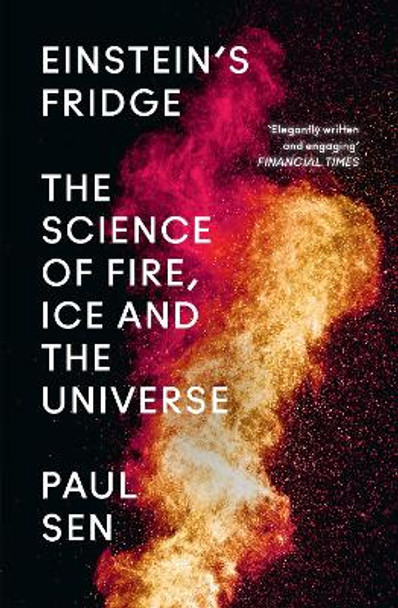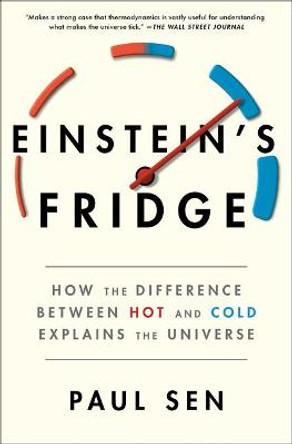Description
'An accessible and crystal-clear portrait of this discipline's breadth, largely told through its history' PHIL BALL, PHYSICS WORLD
Einstein's Fridge tells the story of how scientists uncovered the least known and yet most consequential of all the sciences, and learned to harness the power of heat and ice.
The laws of thermodynamics govern everything from the behaviour of atoms to that of living cells, from the engines that power our world to the black hole at the centre of our galaxy. Not only that, but thermodynamics explains why we must eat and breathe, how the lights come on, and ultimately how the universe will end. The people who decoded its laws came from every branch of the sciences - they were engineers, physicists, chemists, biologists, cosmologists and mathematicians.
Their discoveries, set over two hundred years, kick-started the industrial revolution, changed the course of world wars and informed modern understanding of black holes. This book captures the thrill of discovery and the power of revolutionary science to change the world forever.
About the Author
Paul Sen first encountered thermodynamics while studying engineering at the University of Cambridge. He became a documentary filmmaker with a passion for communicating profound scientific ideas in an engaging and accessible way to a wide audience with landmark TV series such as Triumph of the Nerds and Atom. These brought a love of storytelling to the worlds of science and technology. Paul's award-winning TV company Furnace, where he is creative director, has made BBC science series such as Everything and Nothing, Order and Disorder, The Secrets of Quantum Physics, and ninety-minute films such as Gravity and Me: The Force That Shapes Our Lives and Oak Tree: Nature's Greatest Survivor. This won the prestigious Royal Television Society Award for best science and natural history program and the Grierson Award for best science documentary in 2016. Einstein's Fridge is born out of Paul's conviction that the history of science is the history that matters.
Reviews
'Sen knows how to grab the attention of an audience ... [An] elegantly written and engaging book ... It's a measure of Sen's achievement that by combining science, history, and biography he takes us on a successful tour through thermodynamics.' Manjit Kumar, Financial Times
'When you combine some of the most profound concepts in physics with exceptional storytelling, this is what you get: popular science writing at its very best. Einstein's Fridge is a hugely readable and entertaining history of thermodynamics and how it has created and shaped our world.' Jim Al-Khalili, author of The World According to Physics
'Makes a strong case that thermodynamics is every bit as lively as those other fields - and vastly more useful for understanding what makes the universe tick ... Thermodynamics does not bow to other fields; other fields bow to it.' Sam Kean, Wall Street Journal
'Superb ... Einstein's Fridge offers an accessible and crystal-clear portrait of this discipline's breadth ... [The book] wanders widely while never losing its connection to the central theme ... Splendid' Phil Ball, Physics World
'Although thermodynamics has been studied for hundreds of years, film-maker Sen writes, few nonscientists appreciate how its principles have shaped the modern world.' Scientific American
'Sen makes a convincing case for the importance of thermodynamics in his impressive debut ... He accomplishes all of this with splendid prose, making ample use of analogies to explain complex scientific ideas. Sen's history of hot and cold is pop-science that hits the mark.' Publisher's Weekly
'This entertaining, eye-opening account of how the laws of thermodynamics are essential to understanding the world today - from refrigeration and jet engines to calorie counting and global warming - is a lesson in how to do popular science right.' Kirkus Reviews
'Sen performs an exquisite examination of an ostensibly simple distinction, the difference between hot and cold.' Booklist
Book Information
ISBN 9780008262839
Author Paul Sen
Format Paperback
Page Count 320
Imprint William Collins
Publisher HarperCollins Publishers
Weight(grams) 220g
Dimensions(mm) 198mm * 129mm * 20mm






